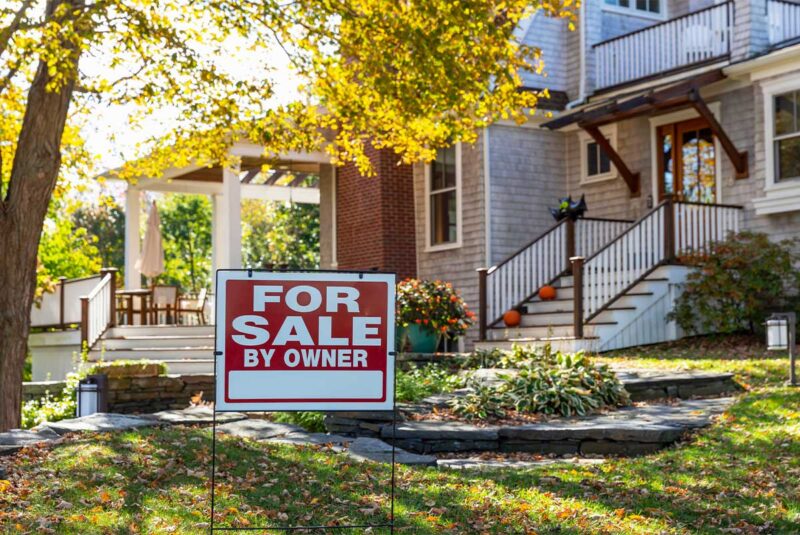Ready To Buy a Home?
Get Approved to Buy a Home
Rocket Mortgage® lets you get to house hunting sooner.
When the housing market gets competitive, people will pull out all the stops they can to win a bidding war. One tactic available to potential buyers is to wave the inspection contingency.
In May of 2023, 25% of buyers waived the inspection contingency.[1] That’s a significant number, especially given how risky the move is.
We’ll explain what it means to waive the inspection contingency, the additional risks you take on as a buyer and why it isn’t recommended in most cases, despite how common it has become.
What Is The Home Inspection Contingency?
Explore Your Mortgage Options
What are you looking to do?
A home inspection contingency gives the buyer the right to have a home inspection completed within a certain timeframe, usually 7 – 10 days. Based on the results of the inspection, the buyer can negotiate repairs with the seller, reduce their offer or potentially walk away from the contract altogether.
Depending on how the contingency is structured, it’s possible to agree in advance of the inspection who will pay for what. For example, an inspection contingency could specify that the seller will handle any issues with the roof, while any issues with the heating, ventilation and air conditioning (HVAC) would be the buyer’s responsibility.
Contingent offers exist to protect buyers. The home inspection contingency is one of the most important contingencies because it safeguards buyers from potentially huge, expensive issues with a home that can be difficult to spot without a professional inspector.
Why Waive The Inspection Contingency?
In hot real estate markets, often referred to as seller’s markets, buyers will try to make their offers as appealing to the seller as possible to stand out from the competition.
Waiving the inspection contingency makes an offer more appealing to a seller because they no longer have to worry about the results of a home inspection affecting the deal.
But buyers beware: In this case, what’s good for the seller isn’t good for the buyer. This is a step that comes with significant risk and shouldn’t be taken lightly – if taken at all.
Need Mortgage Help?
New home, second home, refinancing, we’ve seen it all. Whatever your goals, expert help is just a click away.
Risks Of Buying A Home Without An Inspection Contingency
Waiving the inspection contingency means waiving your protection. By giving up that protection, you limit your options as a buyer, making it more likely you’ll be forced into a difficult decision or end up with buyer’s remorse.
Specifically, by waiving the inspection contingency, you give up the right to renegotiate with the seller based on the results of the inspection. If you choose to walk away from the purchase altogether, you’ll lose your earnest money deposit.
It’s important to differentiate the inspection contingency from the home inspection itself. Even if you waive the contingency, it’s still highly recommended that you get a home inspection so you’re aware of any potential issues with the home.
Let’s look at an example.
Say the inspection reveals cracks in the home’s foundation. That’s a problem that could cost tens of thousands of dollars to resolve, and it affects the structural integrity of the home. With a contingency, you have options as a buyer:
- You could ask the seller to make repairs.
- You could knock the estimated cost of repairs off the purchase price.
- You could ask the seller to cover closing costs, known as seller concessions.
- You might be able to walk away from the deal without losing your earnest money.
By waiving the inspection contingency, your options are much more limited. You must either proceed with the home purchase, knowing you’ll be on the hook for thousands of dollars of repairs, or walk away from the deal and lose your earnest money deposit.
When Should You Consider Waiving The Inspection Contingency?
We generally don’t recommend waiving the home inspection contingency, especially if you’re a first-time home buyer.
However, if you’re in an ultra-competitive market and believe it’s the best chance you have at getting the property, here are steps we recommend taking beforehand:
Before Waiving the Inspection Contingency
A good real estate agent should know the market and be able to advise you. Ask them if they feel this move is necessary to win the property or if they have ideas for alternative measures that would expose you to less risk.
The seller’s disclosures won’t reveal every potential issue with a property, but they can contain red flags. For example, if the disclosures don’t say when the roof was last replaced and they mention a leak in the ceiling, that’s a good indicator you’ll need to spend significant funds on the roof.
Do a walkthrough of the property, and take your time to be extra thorough. Check to see that all electrical outlets work, go into the crawl space and look at the foundation. It’s not a guarantee there won’t be problems, but you might be able to spot issues that give you pause about waiving the inspection contingency.
Let’s say your earnest money and due diligence deposits total $7,000. Walking away from the deal would mean losing that money, so you might be tempted to go through with purchasing the home regardless of what the inspection report says.
However, if major, costly repairs are needed, it could be a mistake to let $7,000 commit you to an even deeper hole. Once you decide to make an offer waiving the inspection contingency, it’s best to consider your earnest money and due diligence as sunk costs. That money is gone, so it should no longer factor into your decision to proceed with the sale or not.
There’s no such thing as a perfect house. Even if you don’t waive the contingency, things will go wrong and break. However, if you decide to waive it, it’s best to have funds immediately available for urgent repairs, since you won’t have the option to ask the seller for help.
Only after going through the steps listed above should you consider waiving the contingency.
Alternatives to Waiving the Home Inspection
If you’re uncomfortable with the risks of waiving the inspection contingency, there are other things you can do to strengthen your offer in a competitive market.
- Modify the contingency language: Short of waiving the inspection contingency, you can work with a real estate attorney or your agent to amend the language. For example, you can agree to go through with the purchase so long as estimated repairs don’t exceed $20,000.
- Increase your offer: If you want the protection of the inspection contingency but know the market is hot, you can always increase your offer or offer above asking. The promise of more money will give the seller something to think about, even if someone else is willing to waive the inspection.
- Waive the appraisal contingency: Waiving the appraisal contingency can strengthen your offer without taking on as much risk as waiving the inspection contingency. However, you’ll want to have the cash on hand to cover an appraisal gap in case the appraiser values the house for less than your offer.
Waiving Inspection FAQs
It’s the length of time the buyer (or seller) has to complete the contingency in the contract. The timeline will fluctuate depending on the specifics of the contingency.
No. Even if you make a high due diligence payment, an inspection contingency gives you the ability to renegotiate the sale price with the seller or ask them to make repairs.
It gives you more options as a buyer. You can renegotiate terms with the seller, ask them to make repairs or potentially walk away based on the home inspection results. Your options are much more limited without the contingency.
Final Thoughts on Waiving the Inspection Contingency
To reiterate, we don’t recommend waiving the inspection contingency. However, if you feel you must, make sure to look for as many red flags as possible before committing and consult with your real estate agent. Ultimately, you’ll be the one responsible for living in the house and making repairs. The last thing you want to experience is buyer’s remorse.
The Short Version
- Inspection contingencies allow the buyer to complete a home inspection, negotiate repairs with the seller or potentially walk away from the contract altogether
- Waiving the contingency means assuming all financial liability for the current state of the home. You also lose the ability to renegotiate or leave the deal after inspection results
- Waiving the contingency isn’t recommended, especially for first-time home buyers. You should only consider it if you have the cash to take on potentially serious repairs
National Association of REALTORS®. “REALTORS® Confidence Index Survey.” Retrieved July 2023 from https://cdn.nar.realtor/sites/default/files/documents/2023-05-realtors-confidence-index-06-22-2023.pdf




